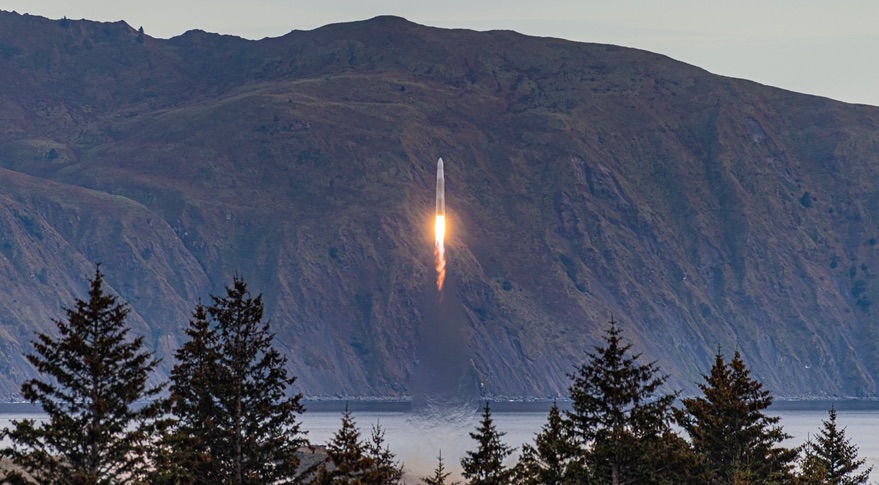WASHINGTON — Astra launched its Rocket 3.1 vehicle late Sept. 11, but the flight ended during the small launch vehicle’s first-stage burn.
The rocket lifted off from Pacific Spaceport Complex Alaska on Kodiak Island at approximately 11:20 p.m. Eastern, according to a series of tweets by the company, which did not provide live video of the launch attempt. The liftoff took place after a previous attempt Sept. 10 was scrubbed because of a sensor issue.
The company later tweeted that the rocket successfully lifted off, but “the flight ended during the first stage burn.” The company did not immediately provide additional details about how long after launch the flight ended, or what terminated the flight. “It does look like we got a good amount of nominal flight time.”
Rocket 3.1 is the first in a series of three demonstration launches by Astra intended to show that the vehicle can reach orbit. In a late July briefing with reporters, company executives said their goal for this launch was to get through the first-stage burn and then separate the upper stage, approximately two and a half minutes after liftoff. The company did not expect this rocket to reach orbit, and the vehicle was not carrying a payload.
“We don’t intend to hit a hole-in-one here,” said Chris Kemp, chief executive and co-founder of Astra, in July. “We intend to accomplish enough to ensure that we’re able to get to orbit after three flights, and for us that means a nominal first-stage burn and getting the upper stage to separate successfully.”
At the time Kemp spoke, Astra planned to carry out the launch during a six-day window in early August from Kodiak. However, a combination of poor weather, technical issues and a range violation kept the rocket grounded. The company initially rescheduled for a window opening in late August, then moved to a window opening Sept. 10 because of weather.
Rocket 3.1 is an updated version of the Rocket 3.0 vehicle that the company developed and attempted to launch during the DARPA Launch Challenge responsive launch competition. The company scrubbed a launch attempt with less than a minute before launch on the final day of the competition March 2. Astra was preparing for another launch attempt in late March, but the vehicle was destroyed when a valve failed after a wet dress rehearsal.
At the July briefing, Adam London, co-founder and chief technology officer, said the next vehicle is largely complete, but still needs to go through testing, as well as any modifications to address issues from this launch. “At a minimum it would be a few months,” he said when asked how soon that vehicle could be ready to launch.
